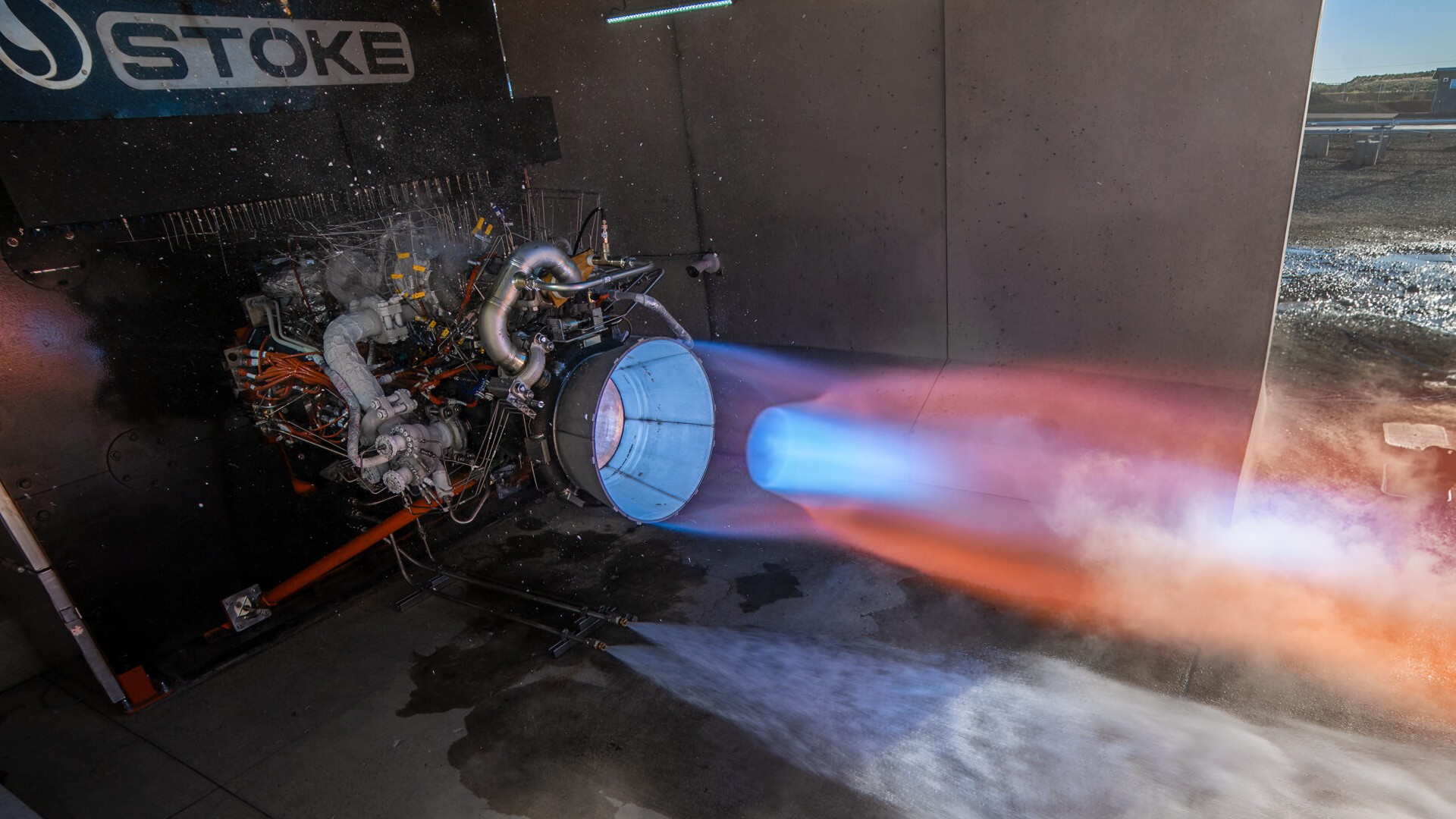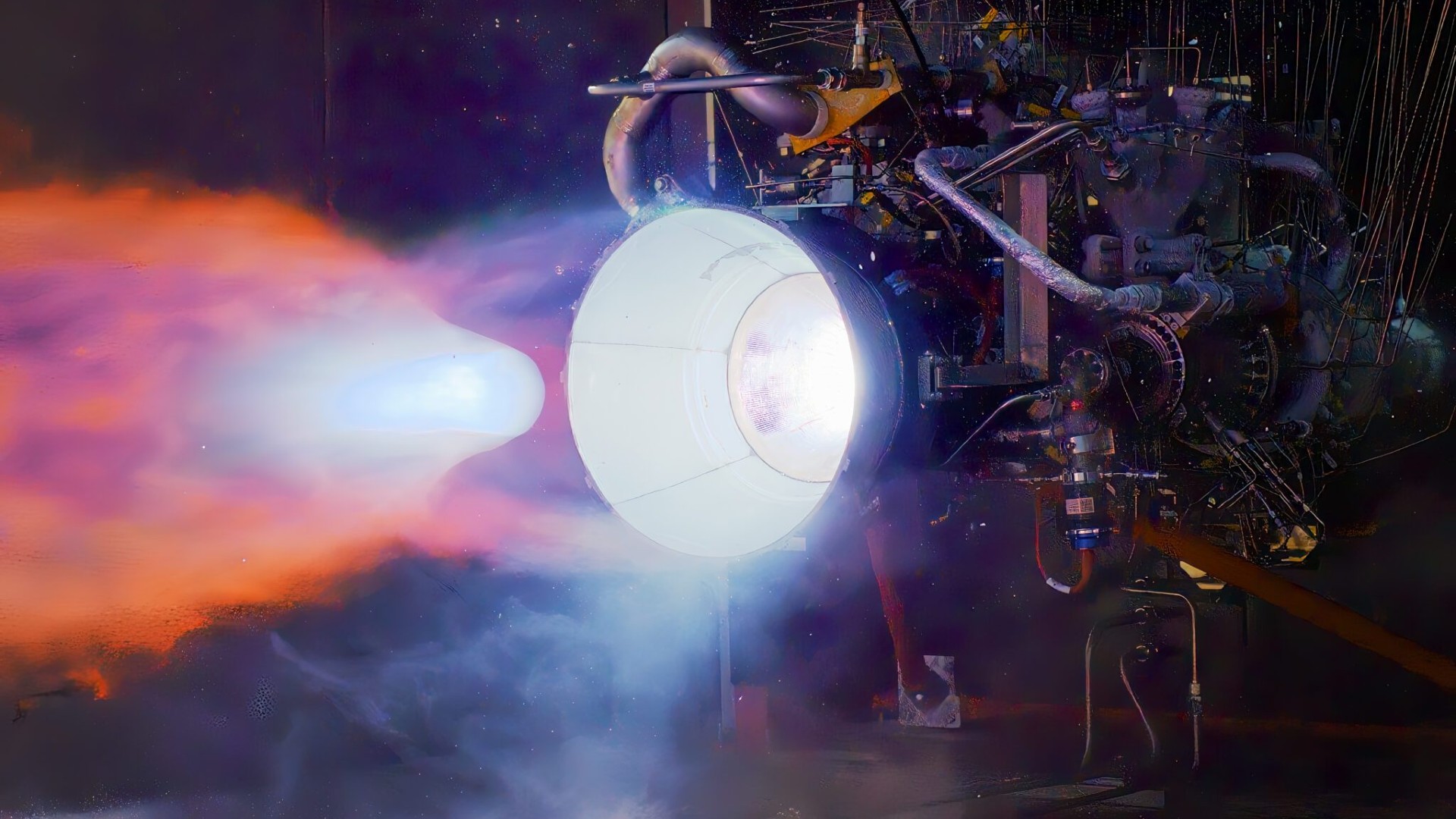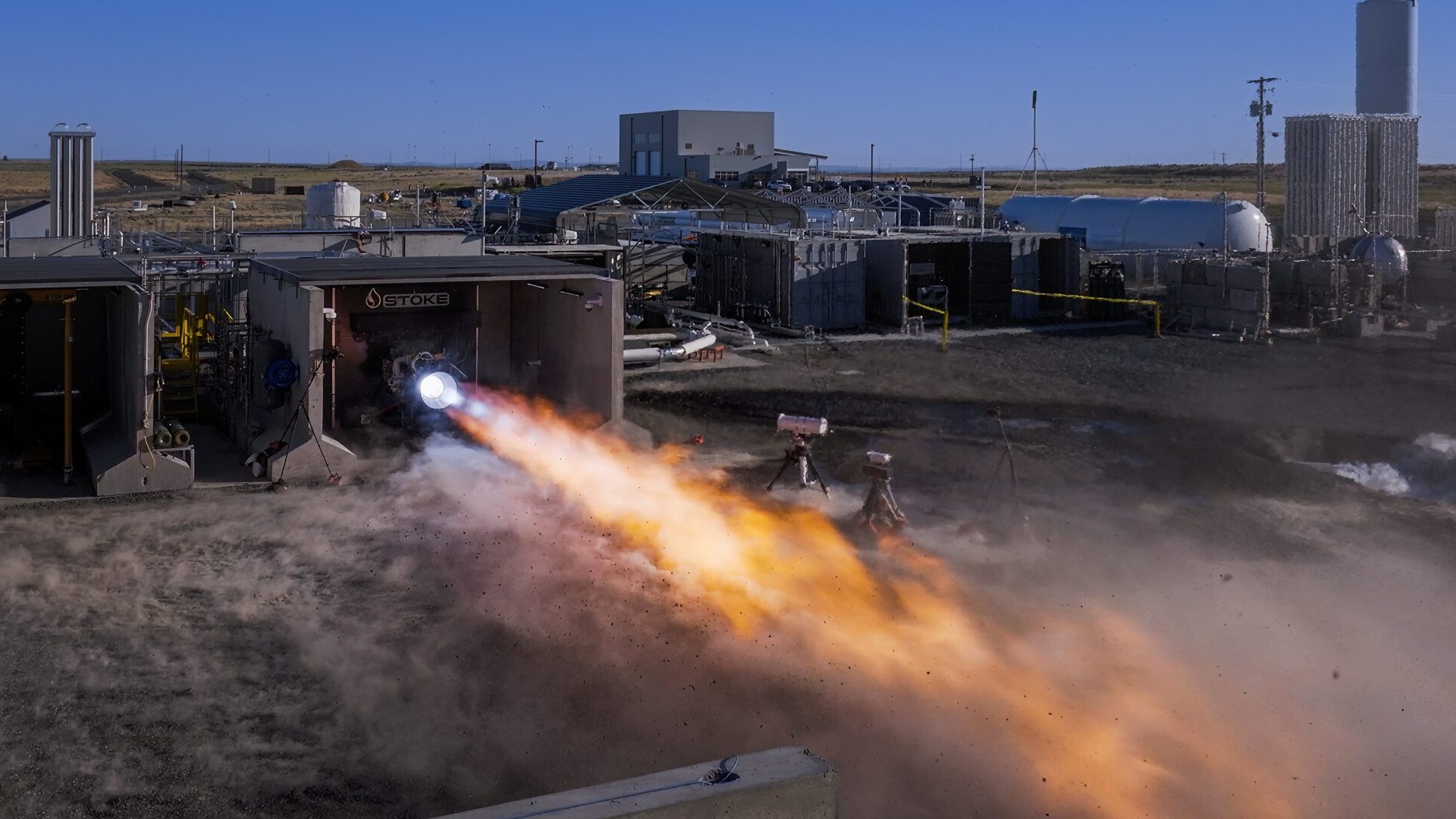Stoke Space test-fires engine for upcoming fully reusable rocket (photos)
The company calls its upcoming Nova launch vehicle the "most robust, fully and rapidly reusable medium-lift rocket in the world."

Stoke Space has announced the first successful hot-fire test of an engine designed for its upcoming reusable rocket.
The Kent, Washington-based company tested its new full-flow, staged-combustion (FFSC) rocket engine on June 5 at the company's test site in Moses Lake, Washington. Photos from the test show the engine kicking up a large plume of sand and rocks as the engine was throttled up to produce half of its maximum thrust.
Stoke Space aims to use the new engine technology in its Nova rocket, a launch vehicle designed to be 100% reusable and to be launched, landed and relaunched in just 24 hours. The company hopes Nova could be ready for a 2025 orbital test flight, SpaceNews reports.
"We are incredibly proud of this achievement," said Andy Lapsa, Stoke Space CEO, in a statement. "Our team has worked tirelessly to bring this engine to life in record time. This successful test is a testament to their talent and dedication, and it puts us one big step closer to bringing the Nova launch vehicle to market. Nova has unique capabilities that give commercial, civil and defense customers access to, through, and from space."

Stoke's Nova rocket is being designed to have a 100% reusable payload fairing and will feature a heat shield with active cooling technology, according to the company's website. The heat shield is integrated with its engine, powered by liquid hydrogen and liquid oxygen. These design elements are intended to make Nova "resilient to damage" in order to cut down on refurbishment time in between launches, the company says.

In September 2023, Stoke conducted a flight test of a prototype rocket known as Hopper2 to demonstrate its novel propulsion and landing systems. The company said the test produced "an incredible amount of data" to help advance the development of its reusable rocket.
Last year, Stoke Space was one of four companies that was granted use of launch pads at Cape Canaveral Space Force Station in Florida as part of the U.S. Space Force's new Launch Pad Allocation Strategy (LPAS).
Get the Space.com Newsletter
Breaking space news, the latest updates on rocket launches, skywatching events and more!
The Space Force hopes opening the pads to additional companies can help maximize launch capacity and "ensure a strong space launch industrial base" for the United States.
Join our Space Forums to keep talking space on the latest missions, night sky and more! And if you have a news tip, correction or comment, let us know at: community@space.com.

Brett is curious about emerging aerospace technologies, alternative launch concepts, military space developments and uncrewed aircraft systems. Brett's work has appeared on Scientific American, The War Zone, Popular Science, the History Channel, Science Discovery and more. Brett has English degrees from Clemson University and the University of North Carolina at Charlotte. In his free time, Brett enjoys skywatching throughout the dark skies of the Appalachian mountains.









